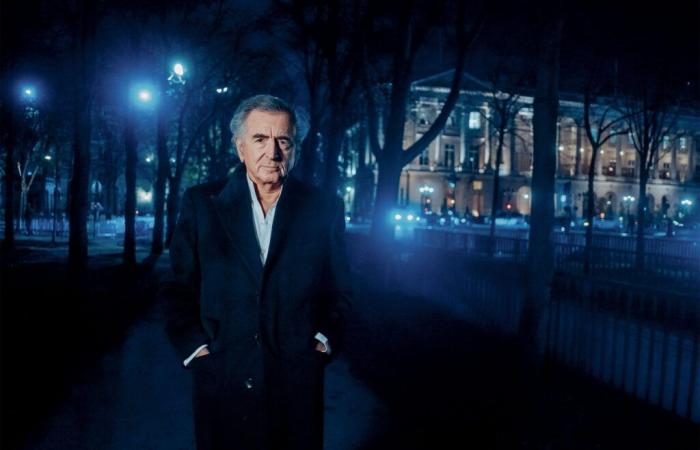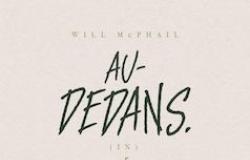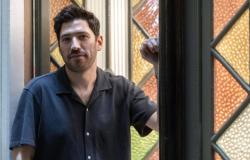A Sunday in November, late afternoon. We hadn’t seen him for fifteen years. Everything remains unchanged. His appearance, his courtesy, his Coca-Cola, his defiance. Bernard-Henri Lévy returns with “Nuit blanche”. A hybrid story between confessions, investigation, wanderings. Through a stream of consciousness, a self-portrait in a dangerous zone emerges. There we meet an anguished, tender, pugnacious, feverish man. The author shears some certainties and delivers some confidences. With him, everything is paradox. Does he love himself as much as people say? We have never seen a personality lock down his image so much, to achieve such a disastrous result. It is a fact: the private man is better than the public man.
“Nuit blanche” is a literary investigation into his insomnia. Why so many sleepless nights? The tracks add up to each other to form a round of unleashed specters. The war reports from which we come back with images embedded in the retina; the uselessness of dozing off when there is so much left to accomplish; the senseless abuse of medicinal cocktails, like so many psychic bombs; the fear of losing control, when we are vertebrated by the cult of secrecy; the fear of dying because there is definitely a day when we discover that we are mortal. “Nuit blanche” is in line with “Comedy” (1997). The author engages in a nervous interior monologue, in a limited time and a circumscribed place. Finally, a surprising and singular self-portrait.
“I don’t like cruel laughter and I don’t like laughing at others. »
“Nuit blanche” is his most intimate story. Bernard-Henri Lévy had never given himself up so much. He confirms it: “In the field of literature, books arrive at their time. For a long time, I have had two or three in mind. I nourish an illusion between me and me, but I think that deep down they will never see the light of day. I liked writing “Nuit blanche” because I enjoyed being in a freedom of pace. » Some scenes are funny. He tries to free his wife’s cat, without touching it, trapped in tangled electrical wires; he attaches himself to a table leg so as not to jump out of the window, following a massive absorption of Haldol; he puts his three doctors in competition; he accidentally finds himself knocked out by the Stilnox during an international flight; he sends embarrassing messages while on sleeping pills. “I laugh willingly and I happily make others laugh, but I don’t like cruel laughter and I don’t like laughing at others. »
The author summons loves, family, comrades. Among lifelong friends, Philippe Sollers, Paul Guilbert, Jorge Semprun. “My dead friends are not presences, but tragic absences. I think of them a lot. What would they have said? I have no answer and I’m careful not to make them talk. » Lawyer Thierry Lévy, who died in 2017, occupies a special place in the galaxy of loved ones. He was the defender of Isabelle Doutreluigne, first wife of Bernard-Henri Lévy and mother of Justine Lévy, when she was imprisoned following burglaries. “We met in 1973. We didn’t have the camaraderie of guys. He was present at an important moment in my life, when Isabelle Doutreluigne was in prison. He stayed with her and interrupted the nightmare mid-course. Thierry Lévy has always been there. I’m not talking about friendly, uninteresting phone calls, but about fraternity and presence. »
The whole story is a tribute to Arielle Dombasle. She invents a twin sister, films him sleeping, responds in the middle of sleep. Bernard-Henri Lévy: “I have strong moments of anxiety and, without it, I would be less joyful. She has an unstoppable and mysterious joie de vivre. How does a woman manage to maintain an equal joy of living, despite mourning, outrages, trials? » Arielle Dombasle remains her bright side. Those who know her describe a woman of great depth, hidden behind protective barriers. Lipstick on childhood wounds.
The rest after this ad
Family is the incandescent heart of a solo story. They are a family of three. Bernard-Henri Lévy mentions his younger brother for the first time, in writing. Philippe Lévy was hit by a car at the age of 15 in 1969. He fell into a coma and woke up with serious after-effects. One day in December, in 2013, Beaujon Hospital called the philosopher to tell him that his brother had thrown himself from the sixth floor. Philippe Lévy miraculously came out alive. For her part, Véronique Lévy, the younger sister, converted to Catholicism. The eldest son remains alone in the ring.
Bernard-Henri Lévy paints a portrait of his parents. The disappearance of his mother was a major ordeal. He confides: “The death of the mother is the beginning of solitude. From that date on, we were irremediably alone. » His father remains the key figure in his life. “He was for me the standard of justice. » The writer recounts, again for the first time, the circumstances of his disappearance. The great industrialist André Lévy underwent an operation at the American hospital that he did not need, in order to be able to accompany his son on the filming of “Day and Night” (1996) in Mexico. He left the hospital prematurely to celebrate his eldest’s birthday. The evening is going well. Bernard-Henri Lévy leaves as a protected son and returns, two hours later, as a devastated son. André Lévy died at the age of 75. Bernard-Henri Lévy feels guilty about it, even if he doesn’t want the word. We will remember that when his mother called him in the middle of the night to tell him of his father’s death, he was asleep.
“I am enthusiastic about life”
The violent reception given to the film “The Day and the Night” remains a vivid memory. “Everything was targeted by the pack: my film, my relationship with women, my relationship with my wife. I have had other failures, like the daily “L’Imprévu”, founded with Michel Butel, but I don’t think we learn from its defeats. We learn from books and from teachers. » Bernard-Henri Lévy has always attracted hateful reactions.
“I resist because I tell myself that it is likely that I am right. We have several lives in one life. I have a life as a writer, but fortunately there is a part of myself that always stays elsewhere. When I am very attacked, I am only affected if the criticism comes from people I respect. I am not one of those who claim not to look at what is written about them. I read to assess the harm it will or will not do to the reception of my work. Otherwise, it doesn’t matter. The media campaign killed “Le jour et la nuit” but, most of the time, the negative reactions have no impact on what I do, the image I have of myself, my joy of living. Sensitive nerves are not affected. There are exceptions. One day, my daughter came home from school in tears because I had been criticized. She was around 8 years old. That’s the only thing that bothers me. »
“The left has become either reactionary or cowardly”
In the street, people sometimes insult him because of his political positions. “Not being considered left-wing doesn’t do me anything at all. The left has become either reactionary or cowardly. An intellectual must chart his own path, which need not be left or right. I have always defended the nuances of my colors, while being massacred by the left. » Bernard-Henri Lévy has six grandchildren. He speaks of Suzanne Mille, daughter of Justine Lévy and Patrick Mille, as a brilliant intellectual. “I would like to give them all some answers on how to behave in life. »
The essayist has always kept a diary. He wants to write his memoirs one day. “We postpone and postpone, but when the time comes, the desire may have disappeared. The real risk is not sudden death, but lack of energy. If the indoor electricity goes out, everything becomes dull and jaded. I hope that when the time comes for me, I will have the same vitality and youthfulness as I have today. “The Patagonian Hare”, by Claude Lanzmann, is successful because he had an intact will to live, to seduce, to convince. The diary allows you to transcribe everything. It is an incredible mine of information, even written in the devilish way. We forget a lot of details in a meeting and they constitute the meat of the events. »
“Time has become my obsession. »
Bernard-Henry Lévy has long thought about writing a book on the author of “The Promise of Dawn”. He wrote a long text on Romain Gary in “Pieces d’identification” (2010). “I was breaking up the Gary-Ajar affair there. Chasms opened within me. I think, in retrospect, that this text cured me of my desire to write a book about him. Gary’s fate: he set in motion a hellish mechanism with Ajar. There was no more room for him, there was only room for Ajar. He died from it. I know my weak areas and I was faced with something too radioactive for me. » The creature can bury the creator, just as the character can devour the person.
The author of “Who Killed Daniel Pearl?” » (2003) remains a man of desire, haunted by the fear of heights. He specifies: “I don’t imagine anything in advance. I have an infinite appetite for the present. Things happen and I want them badly. I get involved body and soul. I am enthusiastic about life. I dream of the present. Events will occur and I will then say to myself: fortunately I am not dead, so that I can experience them. » At the very end, he will admit to us: “Time has become my obsession. » What to do with the remaining time? “I keep nothing, I lose everything. » Regularly, he solicits some in search of a piece of paper, dating from a distant youth. In his life, only one material thing has withstood the river of years. On his desk, for thirty years, an immutable object: his father’s pen. A heavy and light fetish. Style and loyalty. Bernard-Henri Lévy hasn’t written a novel for a long time, as if he had buried the sensitive part of his being. He assures: “With “Nuit blanche”, I have broken the rock and I think I am ready to write other novels. » But does he know himself so well? There is definitely something buried and on the run about him.
“Nuit blanche”, by Bernard-Henri Lévy, ed. Grasset, 192 pages, 18.50 euros. Released January 8.
© Grasset






